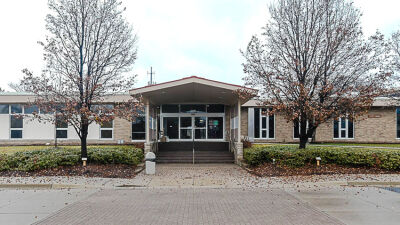MADISON HEIGHTS — Two proposals in the Michigan Legislature aim to change the way the state supports municipalities. The Madison Heights City Council has issued a resolution in support, with officials saying it would help the city cover essential services without increasing taxes.
The two proposals — House Bill 4274 and House Hill 4275 — would have the state establish a revenue sharing trust fund, which would be funded by 8% of the 4% sales tax. The trust fund would be dedicated specifically for statutory revenue sharing, one of the two types of state revenue sharing in Michigan, the other being constitutional revenue sharing.
Unlike constitutional revenue sharing, statutory revenue sharing is subject to the state government’s annual appropriations process. Since 2001, the actual statutory revenue-sharing payments to cities, villages, townships and counties have been below full funding each year. The city has lost a cumulative $16.1 million in this fashion since 2002.
Last October, the Michigan House of Representatives voted 106-4 to create the revenue sharing trust fund by amending the Michigan Trust Fund Act and the General Sales Tax Act. The idea is it would create a more stable and predictable revenue source that isn’t impacted by politics in Lansing. The Michigan Senate has not yet taken up the proposal.
The Madison Heights City Council unanimously approved its resolution of support in a 6-0 vote at its regular meeting March 11. Mark Bliss, the mayor pro tem, was out of the country that night. When asked afterward how he would have voted, Bliss said that he also would have supported it.
“I think it’s about prioritization at the state level,” Bliss said. “If the state can prioritize tax dollars going directly to communities, it will make a bigger impact on the average taxpayer’s life here in Madison Heights. That money can go directly to our road projects, our public safety, our local library, things that people use on a frequent basis, things that they rely on in their day-to-day life.
“Similar to the price increase our residents are seeing at the grocery store, nearly all of our city contractors have been increasing their prices, even for things like simple road repair or grass cutting,” Bliss said. “Thankfully, we’ve continued to keep the millage rate we levy the same to ensure there is no increase in taxes to residents outside of normal increases tied to their property values increasing. But if (economic trends) continue, it prompts tougher decisions where we’re either sacrificing some of these repairs and services — maybe not hiring as many police or fire personnel, for example, or waiting on replacing a fire engine — or we’re faced with having to raise taxes.”
Melissa Marsh, the city manager of Madison Heights, thanked state Rep. Amos O’Neal, D-Saginaw, and state Rep. Mark Tisdel, R-Rochester Hills, for helping advance the bills in bipartisan manner. She also thanked state Rep. Mike McFall, D-Hazel Park, for his local support, as well.
Ed Klobucher, the city manager of Hazel Park, has long criticized what he describes as Michigan’s “broken system of municipal finance,” including the interaction between Proposal A and the Headlee Amendment, two policies that together sharply limit what cities can collect from taxable properties to just 5% or the rate of inflation, whichever is less.
Klobucher said that he wants to see the state make the situation more equitable, and one way to do that would be implementing the revenue sharing trust fund.
“We will pass a similar resolution (on the Hazel Park City Council) in April,” Klobucher said. “The state should absolutely step up support for cities. I have fought to restore revenue sharing to cities for my entire career. The state has underfunded cities for over 20 years, balancing its budgets on the backs of local government.”
Roslyn Grafstein, the mayor of Madison Heights, said that action is long overdue.
“This loss of revenue has placed an undue financial strain on the city as we struggle to balance our budget without reducing essential services or increasing our tax rate,” Grafstein said in an email. “If approved … this statewide program will help Madison Heights, Hazel Park and our neighboring communities receive much needed funding.”
 Publication select ▼
Publication select ▼



























